The first time Alpesh Chauhan conducted Birmingham Opera Company, he was surrounded by rats: six-foot tall rats, singing Shostakovich at the top of their voices. There were singing cops, too, and a marching band wearing bloodstained wedding dresses, and this was all happening in a derelict Edgbaston dance hall best known as a location for the 1980s Central TV drama Boon. Well, of course it was. BOC is the company that staged Mussorgsky in a circus tent and Stockhausen in an abandoned chemical warehouse; its whole point is to upend traditional assumptions about opera. The big difference in its production last year of Lady Macbeth of Mtsensk came from the orchestra. Chauhan drove Shostakovich’s score with a brooding, purposeful intensity that felt as though you’d been caught in a riptide and dragged under.
The company obviously liked what they heard, because last month they put a ring on it. Chauhan has been appointed as BOC’s music director, working alongside its irrepressible, combative artistic director Graham Vick to create…what exactly? BOC doesn’t function like other opera companies. Its chorus, for starters, is made up of local volunteers from a bewildering diversity of backgrounds. ‘Graham is well known in Birmingham, and he pulls together people of all classes, all colours, all religions, everything,’ explains Chauhan. ‘BOC advertises for performers in local shops — they put up posters in Tesco. Some are teachers; some are medics; some of them are refugees who’ve only recently arrived in the UK. They all come together on a human level while learning and being part of an opera.’
Which is where Chauhan fits in. He’s a born Midlander; a state school boy from Handsworth Grammar, still young enough at 30 to feel rooted in a community where attending (let alone performing in) an opera is about as normal as a mission to Mars. Yet it nearly didn’t happen: he made his BOC debut as last-minute maternity cover for Mirga Grazinyte-Tyla. ‘When I started getting my hands dirty with Lady Macbeth Graham Vick announced to the chorus, “You’re going to meet the conductor today”, and I felt as nervous as when I first conducted the London Symphony Orchestra,’ he remembers. ‘So I stepped up and said, “Look, I’m a Brummie; I’m from round here. I love what this company does and we’re going to do something really extraordinary with one of the hardest operas in existence.”’
They did, too — the production beat the Royal Opera to win the 2019 RPS Opera & Music Theatre Award. ‘Producing any opera is always a huge job. But with BOC we also have the responsibility of treating our volunteers professionally. It’s about having high standards for them while knowing, at the back of your mind, that many of them can’t read music. You might have a group of people dressed as police officers, swinging clubs at their victims, and you can’t just say, “You’re coming in late.” You need to find a musical solution that makes dramatic sense: “Let’s try to swing your clubs in some sort of rhythm with the beat that I’m going to give you.” You need to think about it.’
What no one particularly had to think about — least of all Chauhan himself — was the aspect of his appointment that Norman Lebrecht headlined on his blog Slipped Disc: ‘Big News: Britain has its first BAME music director.’ Chauhan’s family is of Indian heritage; his mother and father arrived in the UK decades ago from Kenya and Tanzania respectively. When, as a teenage cellist, Chauhan played Stravinsky’s Firebirdwith the CBSO Youth Orchestra, an Arts Council wonk in the audience demanded to know why the orchestra wasn’t playing music that was ‘relevant to him’. For Chauhan, that’s a mentality, and a way of looking at the musical world, that doesn’t seem particularly, well, relevant.
‘When I was at school in Handsworth, there were only three or four kids in my form who weren’t BAME. Music took me into a different, less closed world. Where I grew up, western classical music was diversity.’ He’s spoken of how his father, a lorry driver for Parcelforce, listened in on his cello lessons, fascinated; of the natural leap from the emotion and high orchestral drama of his parents’ favourite Bollywood songs into Tchaikovsky and Puccini. ‘Of course I appreciate that to see somebody of your own background doing this could be inspiring, and one of the most important projects I’ve ever conducted was the BBC’s Ten Pieces, because it went to every child in the country. I’m proud to be doing this, naturally, but it’s not really a story. At Birmingham Opera Company diversity is the norm. It’s just what Birmingham looks like.’
More significant, surely, is the fact that — as one commentator on Lebrecht’s blog put it — Chauhan ‘is just very, very good’. That’s no accident, either: he spent his twenties laying the groundwork of a highly individual symphonic career. He served as assistant conductor at the CBSO, conducted opera in Sardinia and Spain, and has just come to the end of a stint as music director of the Filarmonica Arturo Toscanini in Parma; a small but spirited Italian orchestra whose players blossomed audibly when Chauhan offered them a respite from endless Verdi and Rossini. He began with an uncompromisingly heavyweight double bill of Britten’s Sinfonia da Requiem and Brahms’s German Requiem — music that had not been performed in Parma in decades, if at all. Slightly to his surprise, they loved it.
‘We had five years together, and it was just a joy to have such a hungry orchestra, such a passionate orchestra. But the thing that I really loved was that the audience came on this journey with us. They genuinely didn’t know Lutoslawski’s Concerto for Orchestra, or Shostakovich’s Tenth Symphony. They’d come up to me and say “Look, last week that Britten piece you did was very weird. But keep bringing it to us because we really enjoy listening to something different.”’
For a young conductor, Chauhan’s tastes are certainly different. It’s been said that all conductors can be classified into two basic categories; Bruckner or Mahler. Mahler offers unchained emotion and guaranteed applause. Bruckner burns more slowly. He lays his foundations, finds his own pace, and unfolds truths that seep into your soul. Chauhan — undemonstrative by nature, and quietly, determinedly shaping a career that has largely flown beneath the radar of British critics — reveres Bruckner.
‘I’m not religious at all but Bruckner finally made me realise — this is what religion can do. When I conducted his Third Symphony with the CBSO my dad came, and I was a bit worried for him. It’s a long old piece to sit through! But he said, “No, I liked it. It reminded me of a long-distance train journey; and looking at the landscape as you travel past.” I use that analogy myself now when I’m talking about Bruckner.’ And it’s not a bad metaphor for a 30-year-old in a career that’s less a profession than a lifelong learning process. It’s early days yet, but when we talk of a future in which classical music is more responsive to its community, less addicted to short-term sensation — in a word, more meaningful — Chauhan might be among those who can show us the way.
Got something to add? Join the discussion and comment below.
Get 10 issues for just $10
Subscribe to The Spectator Australia today for the next 10 magazine issues, plus full online access, for just $10.
You might disagree with half of it, but you’ll enjoy reading all of it. Try your first month for free, then just $2 a week for the remainder of your first year.

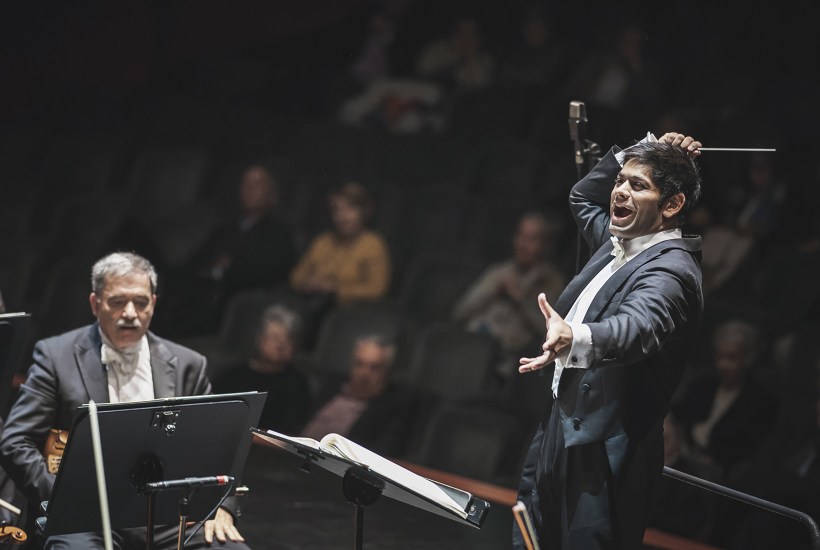
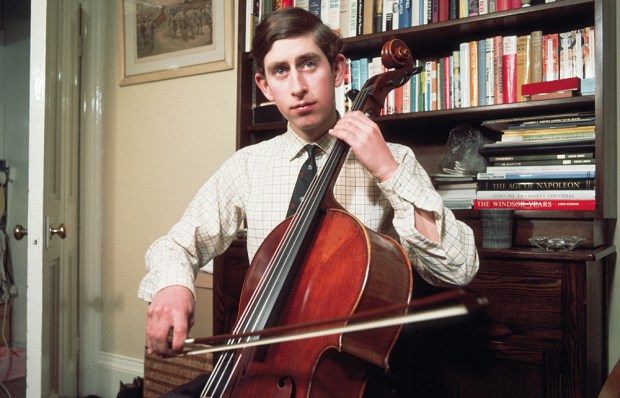
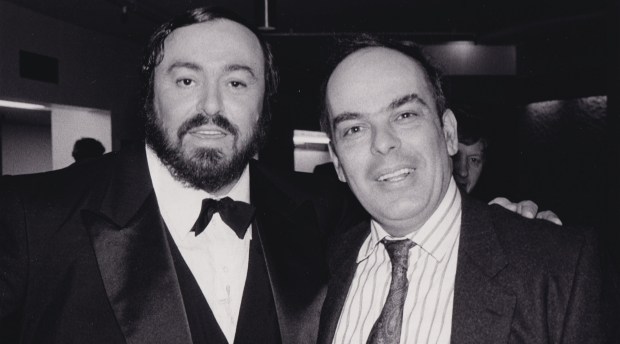

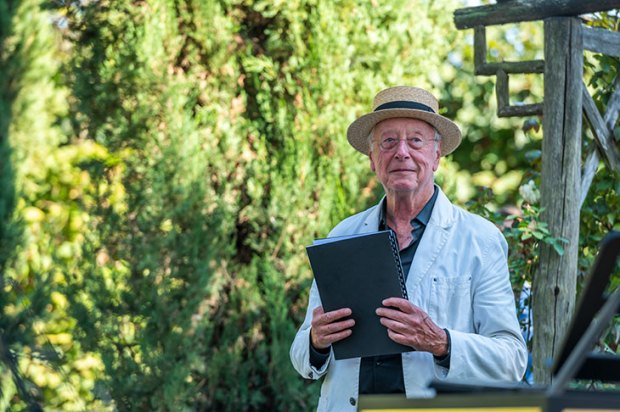
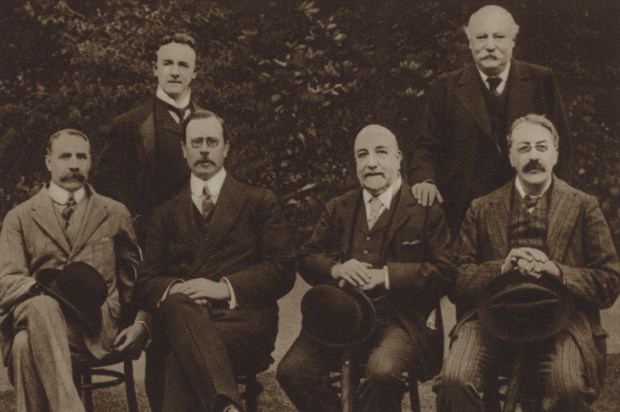







Comments
Don't miss out
Join the conversation with other Spectator Australia readers. Subscribe to leave a comment.
SUBSCRIBEAlready a subscriber? Log in